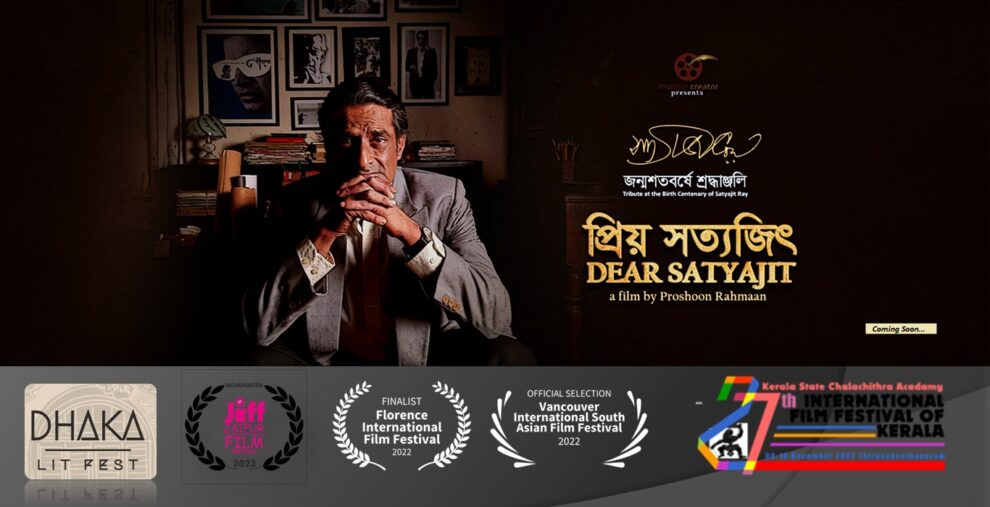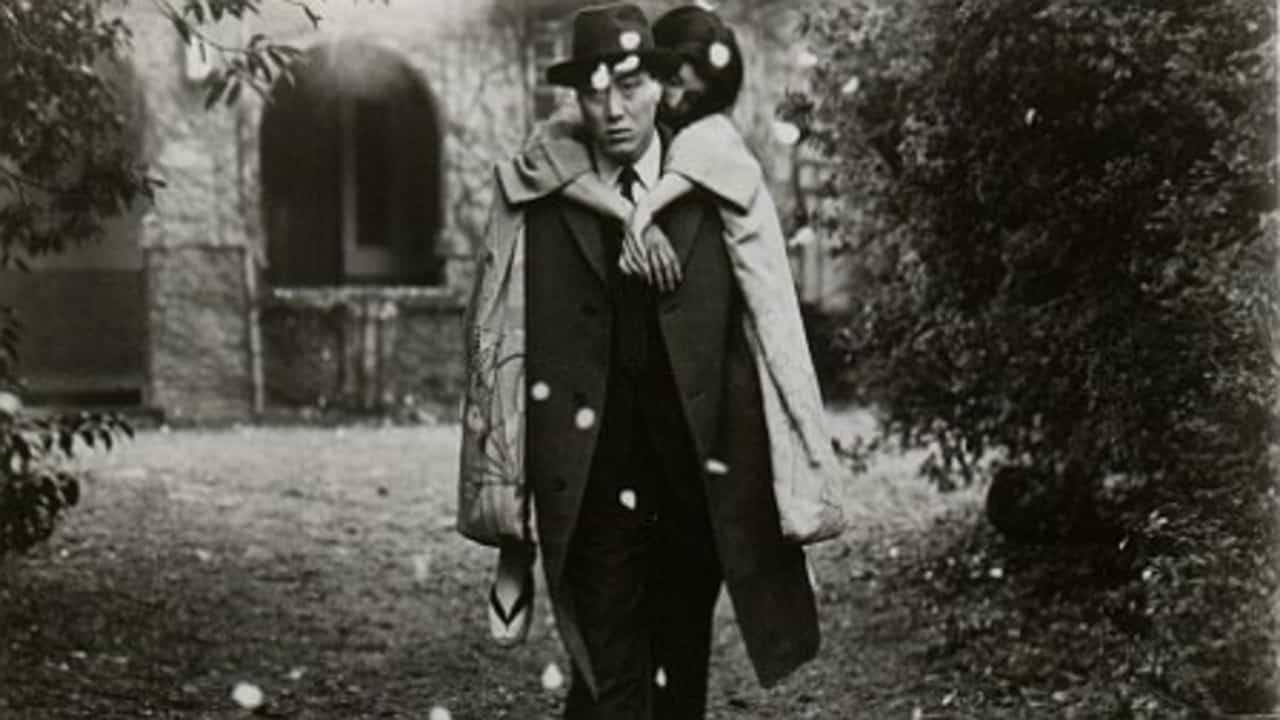Satyajit Ray remains a leading idol for Bengalis all over the world (as much as for Indians and to a secondary degree, international audience) even more than 30 years after his death. Bangladeshi Proshoon Rahman pays tribute to the great filmmakers by coming up with a movie that moves somewhere between the feature, the documentary, and the film about the film. “Dear Satyajit” has already screened in a number of festivals around the world, including Vancouver, Florence and Kerala, winning the Jury Prize for Best Feature from Florence, and Best Actor, Best Cinematography & Best Editing Award in Feature Film Category from Jaipur.
“Dear Satyajit” review is part of the Submit Your Film Initiative
The movie starts with a documentarian, Aparajita Huq, wishing to shoot a hybrid documentary to commemorate Ray's birthday centenary celebration. She has already found a protagonist in Asif Mahmud, a man who resembles the Bengali filmmaker in a number of ways, with the first scenes dealing with her meeting the crew and discussing how the film will work. The next part takes mostly place inside a car, where Asif narrates his life story, in a parallel with Ray's, while sequences of various scenes of his narration, featuring actual actors who portray Satyajit/Asif in various ages (child, teen, young) are interspersed throughout the actor's narration. Eventually, the crew reach their destination, Ray's ancestral home in Kishorganj, Bangladesh.
Proshoon Rahman directs a very ambitious film, considering the aforementioned combination and the whole burden of talking about one of the definite masters of international cinema, but in general, it is easy to say that he fares relatively well. One of the main reasons for this success is definitely Ahmed Rubel as the Satyajit/Asif who gives a rather imposing performance, assisted by his deep voice and his exterior similarities with the Bengali master, essentially managing to make the viewer feel that the latter is actually sitting in the car talking. The fact that the majority of his storytelling focuses on the life of Ray before he became a filmmaker emerges as rather intriguing, since usually, the content about him focuses on his life after his debut with “Pather Panchali”. Here, his movies are also referenced, but only closer to the end of the film, after the cast and crew reach the actual, aforementioned house, in an element that definitely adds to the quality of the scriptwriting. Through this whole aspect, Rahman also succeeds in highlighting the impact Ray had on various filmmakers while making a parallel with Nobel Laureate Tagore, who reached similar heights, this time in literature.
The amalgam of film about film, documentary, dramatization and road trip that makes up the narrative of “Dear Satyajit” is quite convincingly handled by Rahman, with each giving its stead to the other in a way that retains interest for the majority of the economical 75 minutes the film lasts. In that fashion, Mahfuzul Huq Ashique's editing emerges as one of the best traits, also for the pace that frequently mirrors the rhythm of the music. Nazmul Hasan's cinematography is also on a high level, particularly in the way he captures Ray's house, as well as the various locations featured throughout the movie, some of which are of intense beauty.
At the same time, the film also exhibits a number of faults. For starters, the almost constant music becomes annoying after a fashion, with the same applying to the rather extended scenes taking place in the car with Rubel just talking. Granted, it is a pleasure to hear him speak, but not for that long, particularly in a movie with the particular duration. Furthermore, the sound also has some issues, especially in the initial scenes when the preparations of the documentary are shown, with the voices sounding particularly artificial while the acting in those scenes is also somewhat excessive, more suitable to TV drama or stage plays instead of a movie. Lastly, the film is quite difficult to follow for someone who does not have some basic knowledge about Ray's life and work.
As such, “Dear Satyajit” emerges as a mixed bag of a film, that is as intriguing as it is annoying on occasion, although in the end, one could say that the sum of its individual elements lingers towards the positive side. Fans (scholars even) of Satyajit Ray will probably enjoy this the most
















